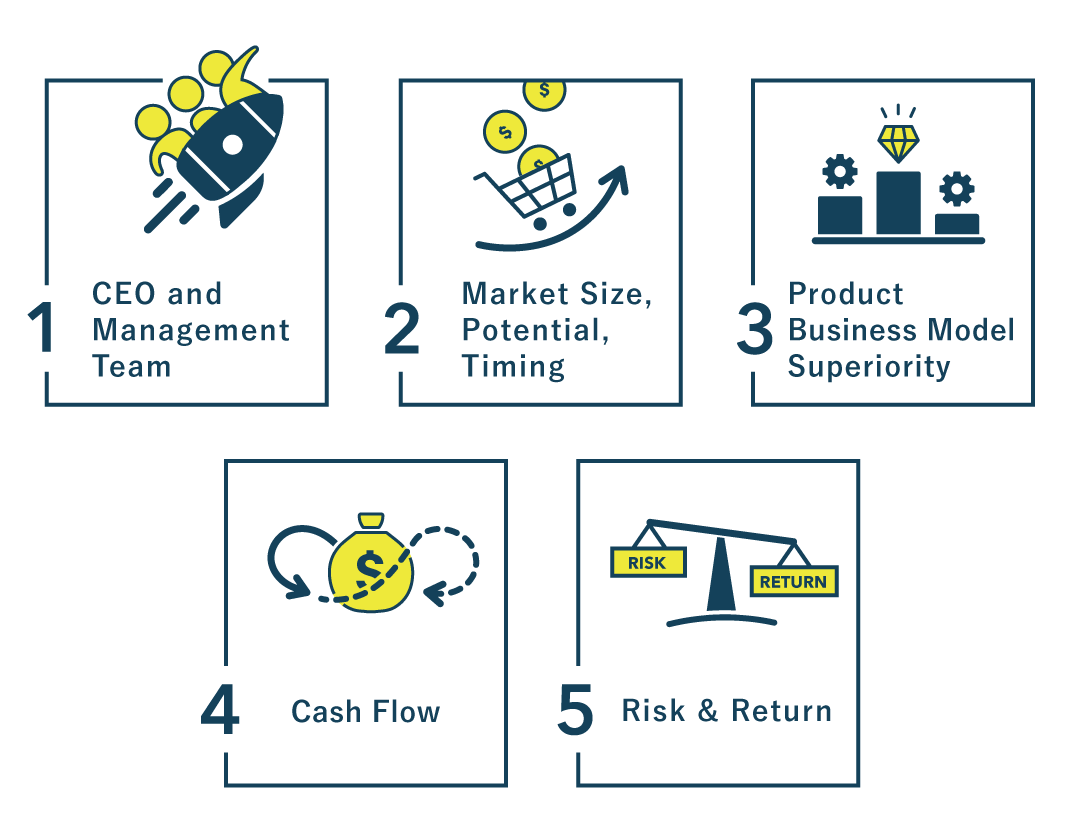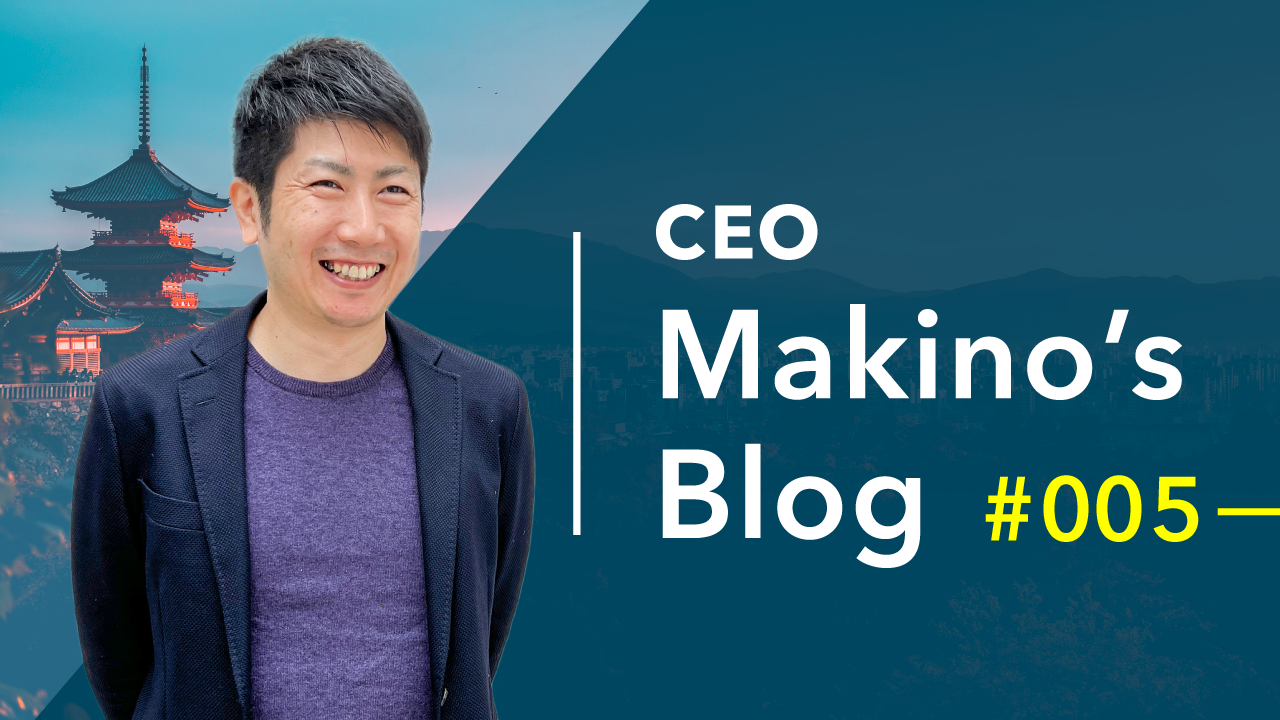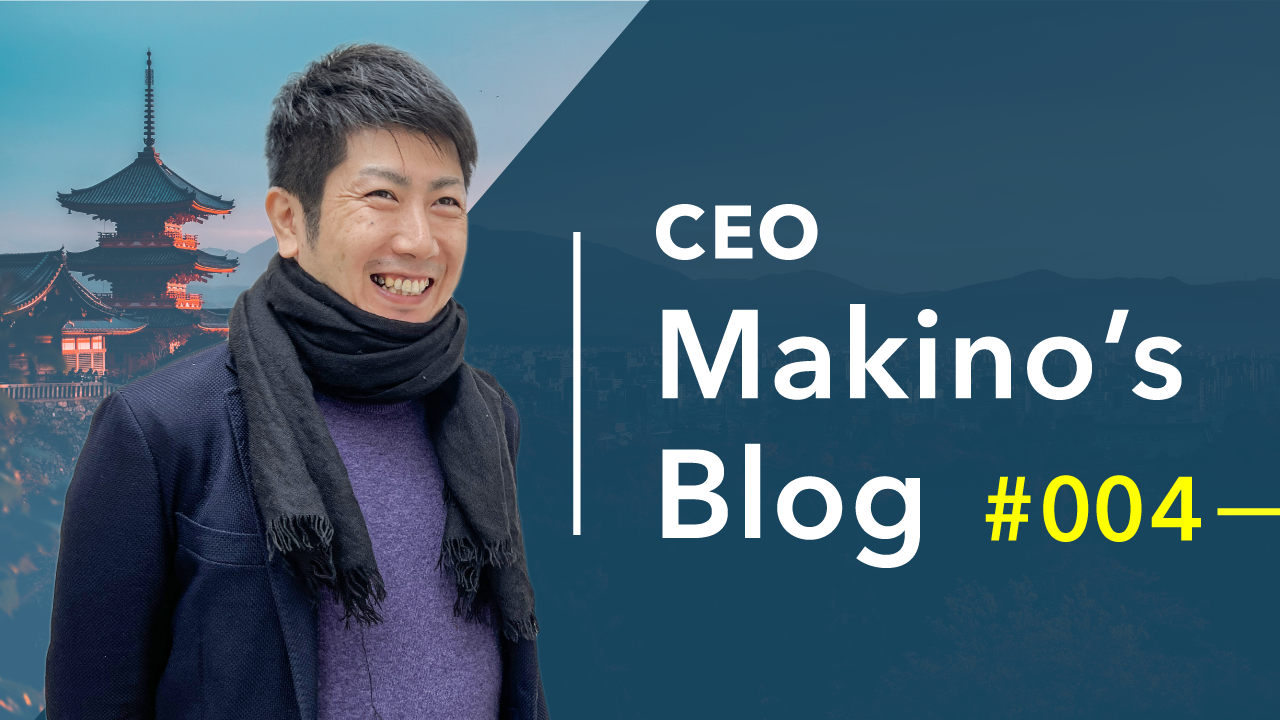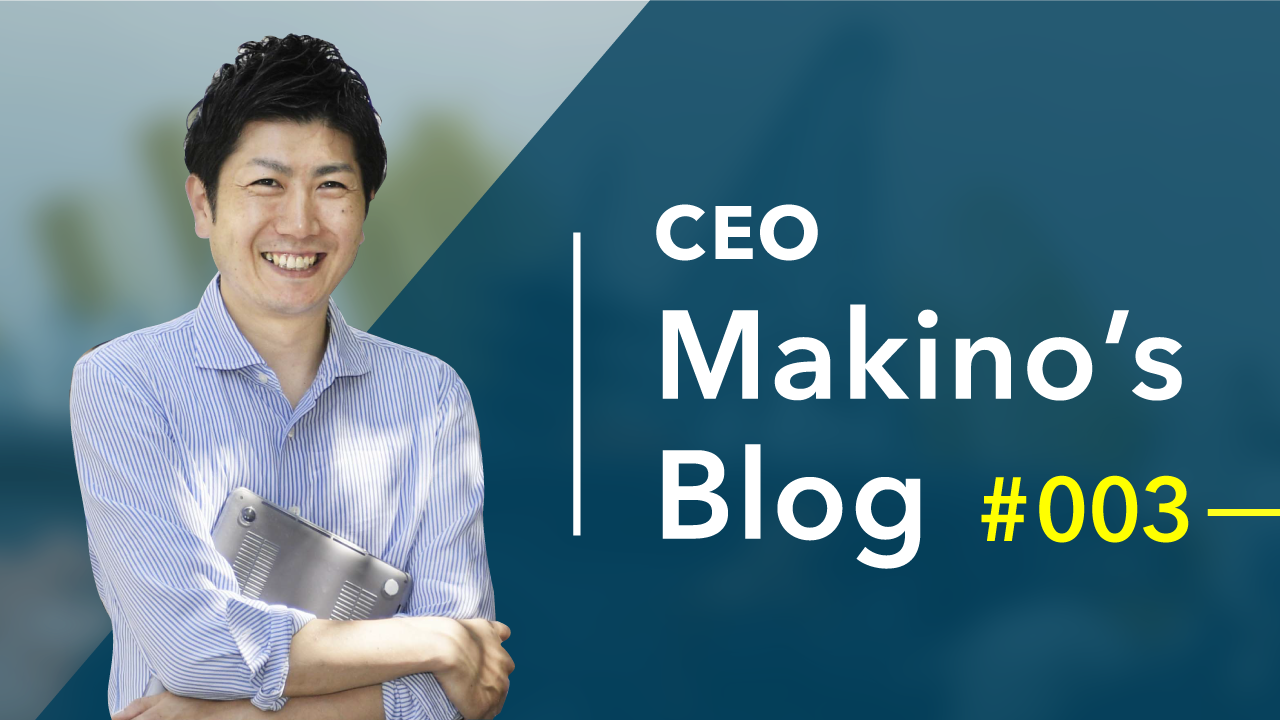This is Makino, CEO of Monozukuri Ventures. In my last blog, I wrote about “Why VCs avoid hardware startups.” I received many good responses and questions from readers. In this blog, I would like to answer a question from a hardware startup: “What is the most appealing aspect to talk about in a pitch meeting with a VC?” Let me explain the key aspects Monozukuri Ventures looks for when investing in hardware startups.

We consider investments from five main criteria.
1. CEO and the management team
We believe that a startup’s team members and capital structure are the most critical factors in receiving investment from VCs. That is because even if the product is not so good, if talented people are running the company, they would have the ability to pivot. When we look at the CEO, we look at the human aspects. When a problem arises, they need to have the ability to trust us to consult with us without hiding it, the ability to get things done, and the ability to respond to it quickly. Lastly, advisory team/shareholders, we look at their background, depth of knowledge about the industry, and their relationship with the company. As I will mention in 5th criterion below, shareholder composition is also important even for seed-stage startups because it hugely impacts their exit.
2. Market size, growth, change, and timing
VCs make investment decisions based on the startup’s growth potential, which depends on the target market. In general, VCs look for if the market size will be over 5 billion dollars. However, the market size is not the only factor. The growth potential of the market and the possibility of change are also important factors. It may be difficult for a startup to expand its market in an existing market where competitors are already dominating. So, it is important to find a market that is growing or changing. It is also important to think of the time frame. Even if the market has the potential to grow in the future, VC funds have a limited time, mostly ten years and the investments are done within 3-4 years, and they look to see if a change will occur within the timeframe. Therefore, timing is critical. It isn’t easy to judge timing, but we try to understand the bigger picture of the market, product, and service traction through interviews with end users.
3. Superiority of the Product and the Business Model
Next, let’s look at products. Although the product and its technology seem to be the one and only factor, as you have already read, they are not the only things VCs look at. In the case of university-launched startups, there is no doubt that the superiority of intellectual property is important. However, the technicality alone does not define the company’s superiority. We judge a startup by their business model and how they monetize their intellectual property. This is true for IoT startups as well. Often their business model and the data are more valuable than the technology. We also dig into why they need to build hardware to acquire the data and why existing devices do not work for their ideas. We also look at the value of the data and how they monetize it. Also, the business model should be something competitors and alternative services cannot imitate.
4. Cash Flow
As they often say, “Cash is King.” No matter how much the company is in the red, it can continue to operate as long as it has cash. In this sense, for a startup, financial strategy significantly impacts growth. Especially for hardware startups, raising funds only through equity (stock) dilutes the stock. So you need to think of combining other types of funding, such as debt financing, crowdfunding, etc. Businesses that focus on specific functions first and then build up the revenue are generally better than ones that intensively develop the whole thing before launching to recover the money, like drug discovery. VCs also look at the runway, how long the business can keep operating before it’s out of money, and since a VC’s DD usually takes 3 – 6 months, it is better to have a runway of roughly 1 to 1.5 years. However, too long is also a problem. Raising more funds than necessary could lead to dilution and unreasonably higher valuations (stock prices). There is no right answer for cash flow, and it depends on external factors as well. So it is important to change it depending on the situation.
5. Risk/Return
The last criterion is the investment return. VCs strive to help startups grow, but we can not forget that our job is to manage and multiply the funds of LPs. Therefore, the exit of the startup is the most important thing. As mentioned above, a fund has a time limit (usually ten years), and we need to get the return within this period. Depending on the situation, we need to consider whether should they should do IPO (Initial Public Offering) or should they do M&A? If so, which company is the best company to partner with? And then, how do we think about return? For example, if the company is at an early stage, can we expect a return of 10 times or more, and what is the probability of that return? Finally, since VCs invest through building a portfolio (a set of companies we invest in), investment decisions are made while comprehensively considering whether there is any bias in the industry, sector, or investment stage and whether the investment as a whole reduces risk. In investment, some factors are common among VCs, such as the management team and market size, but other factors vary. In order for startups to increase their chances of getting funding, it is important to explore what kind of information the VC values. This is true not only for VCs but also for CVCs, non-financial companies, and bank loans. Also, please understand that even when we see a promising startup, we are sometimes forced to give up investing in the company because we need to think about the fund’s duration and the balance of the portfolio as a whole. We at Monozukuri Ventures hope to improve the financing environment for hardware startups as much as possible. Please feel free to contact us and discuss any concerns you may have.

CEO of Monozukuri Ventures, born in Aichi, Japan. I have been living in Kyoto and working with startups in the Kansai area for 17 years now. I am also working to make Kyoto city full of startups, artists, and creators. In addition, I am a father of a baby and doing my best to raise my child as well!








